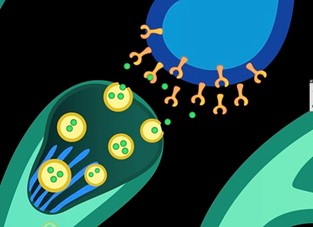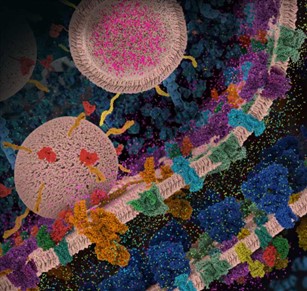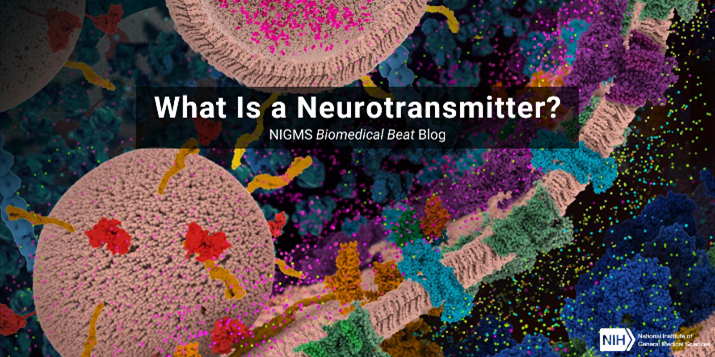Have you wondered what controls the most basic functions of our bodies, like breathing, moving, and sleeping? Chemicals called neurotransmitters play a central role. Neurotransmitters pass messages from one nerve cell to another, and sometimes to muscles or glands. These messages may:
- Prompt the next nerve cell to pass on the message, prevent the message from going any further, or adjust how the message is passed on
- Cause a muscle to contract, like our intestines do when they digest food
- Tell a gland to secrete hormones, which are molecules that further pass on messages to tissues or organs
How Neurotransmitters Work

To understand neurotransmitters, we first need to get to know the nerve cell. Nerve cells, also called neurons, are cells that make up our nervous system and have long specialized extensions, called axons, to carry messages as electrical signals. Small gaps between neurons are called synapses. Because of these gaps, electrical signals can’t travel directly from one neuron to the next, much like how electricity can’t travel if a wire is cut. Neurons convert an electrical charge to a chemical signal—a neurotransmitter—at the end of the axon to solve this problem, which allows them to continue transmitting their messages.
Neurotransmitters live in tiny pouches called vesicles near the end of a neuron. When an electrical charge arrives at the nerve ending, vesicles release neurotransmitters into the synapse. Once there, neurotransmitters travel across the synapse and latch onto the next cell by binding to a receptor. This binding triggers a change or action in the next cell, depending on what type of cell it is.
After a neurotransmitter’s job is done, enzymes may deactivate it or the neuron that released it may reabsorb it.
Types of Neurotransmitters
Scientists have identified more than 200 neurotransmitters since discovering the first in 1921, and they’re still finding new ones. Examples of common neurotransmitters include:
- Dopamine, which plays a role in movement control, learning, and emotions
- Glutamate, which helps nerves grow and heal
- Histamine, which encourages wakefulness and plays a role in allergies
- Norepinephrine, which affects sleep, blood pressure, and alertness
- Serotonin, which influences mood, sleep, and digestion
Neurotransmitters and Disease

Abnormal levels of neurotransmitters play a role in many diseases of the nervous system. Often, conditions can involve imbalances in multiple neurotransmitters. For instance, excessive glutamate release increases cell death in Alzheimer’s disease, and improper functioning of norepinephrine may also contribute to the disease’s symptoms. In addition, researchers have linked unusual levels of both dopamine and serotonin to depression, and they have connected irregularities with norepinephrine and dopamine to attention deficit hyperactivity disorder. Some medicines, such as selective serotonin reuptake inhibitors (SSRIs), can help regulate neurotransmitters. SSRIs make more serotonin available for the body to use, and clinicians often prescribe them to help treat depression.
Neurotransmitters are vital messengers for our well-being. The next time you stand up from the couch or start feeling sleepy, think about the network of messages neurotransmitters are sending throughout your body.

Learn more in our Educator’s Corner.







